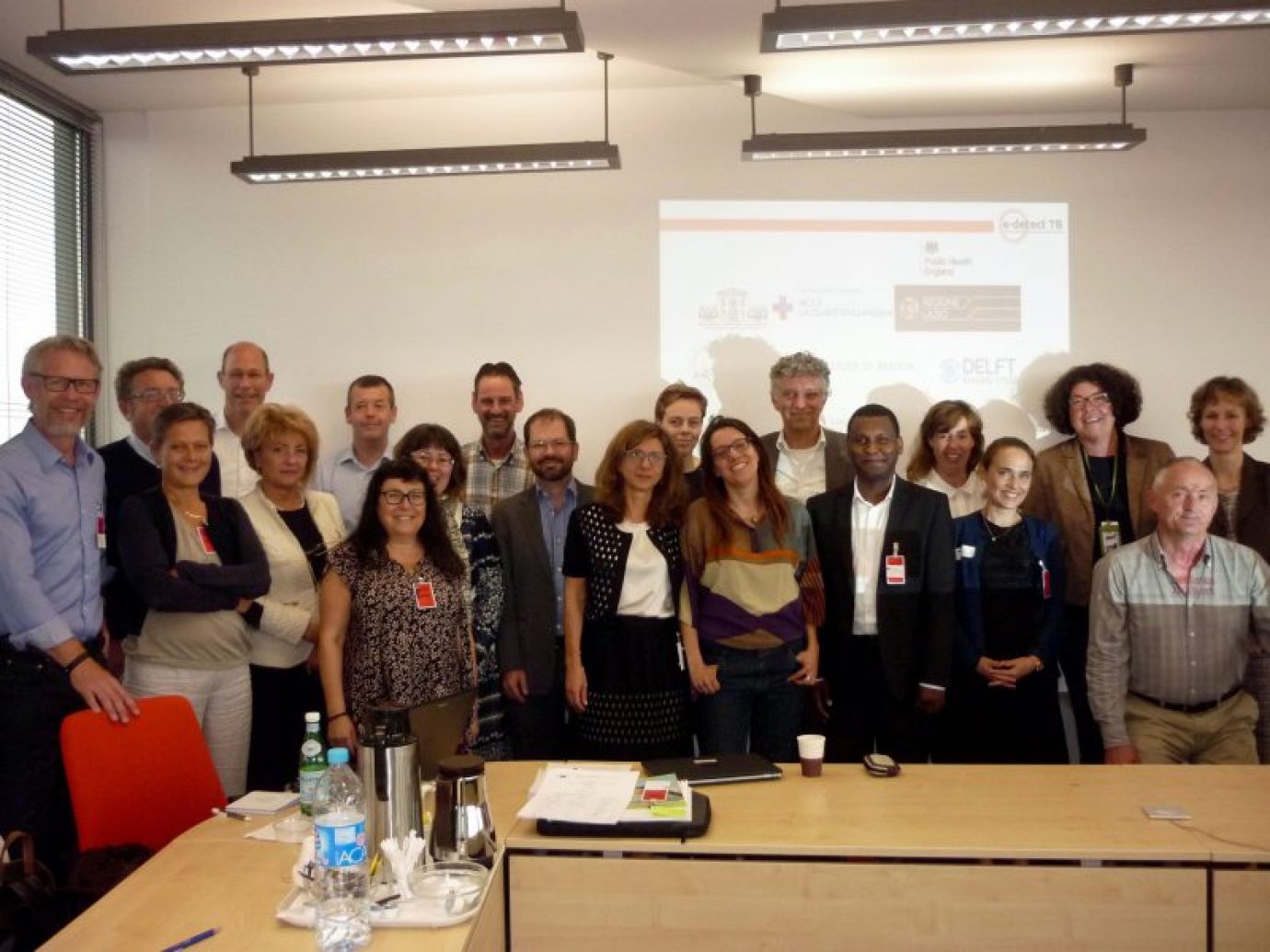KNCV is one of the partners in E-DETECT (early detection and integrated management of tuberculosis in Europe), a project that was recently launched at a meeting in Luxembourg.
Press Release
17th June 2016
The European Commission’s 3rd Health Program co-funds E-DETECT (early detection and integrated management of tuberculosis in Europe), a project that launched at a meeting on 8th June 2016 in Luxembourg.
This project will contribute to the eventual elimination of tuberculosis in the European Union by utilising evidence-based interventions to ensure early diagnosis, improve integrated care and support community and prison outreach activities in low- and high-incidence countries. The E-DETECT TB group aims to achieve this by working through their network of partners in six member states (Bulgaria, Italy, Romania, Sweden, the Netherlands and the UK). They will jointly evaluate evidence-based interventions, taking best practice approaches from countries where co-applicants have developed national strategic plans and provide a framework, in collaboration with the Directorate for Health and Food Safety (DGSANTE) and the European Centre for Disease Prevention and Control (ECDC), to support the adaptation and implementation of these measures. E-DETECT TB will prioritise migrants, homeless persons, prisoners, problem drug users and those with multi-drug resistant tuberculosis.
Work packages include:
- Outreach for early diagnosis: Using a mobile x ray unit equipped with computer- aided diagnostics and molecular test to detect tuberculosis in Romania and Bulgaria, and ensure appropriate support to complete treatment.
- Migrant TB detection, prevention and treatment: In Italy, we will actively screen new and settled migrants for active and latent TB respectively ensuring that those testing positive are appropriately managed and generating the evidence to support future European policy.
- Establishing a database of latent and active TB in Europe starting with Italy, Sweden, the Netherlands and the UK to inform epidemiological analysis and future interventions to control TB.
- Supporting national TB programmes to develop action plans and national TB control strategies by establishing an action framework.
Professor Abubakar, Scientific Coordinator for the project said:
“Winning the E-DETECT TB bid provides an excellent opportunity for our group of TB experts, world leading universities, charities and national TB programmes to contribute to the global and European effort to end the TB epidemic. It is great to now finally be able to bring together the diverse and rich contributions of our partners in order to exploit new technology and advances in knowledge to control TB”
Details of the E-DETECT TB project can be found on our website: www.e-detecttb.eu
The E-DETECT TB consortium is composed of the following partners:
- University College London (London, United Kingdom)
- KNCV Tuberculosis Foundation (The Hague, The Netherlands)
- Ospedale San Raffaele (Milan, Italy)
- Marius Nasta Institute of Pneumology (Bucharest, Romania)
- Karolinska Institute (Stockholm, Sweden)
- University of Brescia (Brescia, Italy)
- Public Health England (London, United Kingdom)
- DELFT Imaging Systems (Veenendaal, The Netherlands)
- Public Health Agency of Sweden (Stockholm, Sweden)
- National Institute for Infectious Diseases (Rome, Italy)
- Tsentar Za Zdravni Strategyi i Programi (Sofia, Bulgaria)

